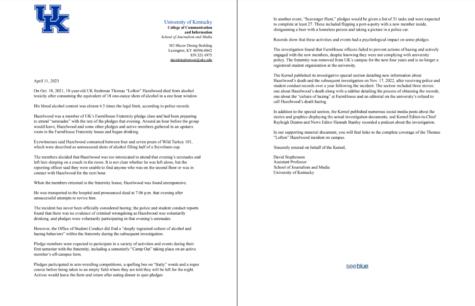Chronic Heart Failure: The Fight This US Veteran Wasn’t Trained For
April 1, 2022
(BPT) – At the age of 40, Jon Rotenberry was working full-time as an air traffic controller, and as a proud U.S. Navy veteran, he considered himself young and healthy. His wife, Jennifer, was pregnant with their first child when a surprise changed everything: Jon was diagnosed with chronic heart failure.
An unexpected battle
In January 2020, while on a trip to Seattle, Jon started to feel ill. Like many other men, Jon wanted to “tough it out.” But after his symptoms – including nausea, fatigue and a severe cough – got worse, Jon visited a convenient care center, where he was initially diagnosed and treated for pneumonia.
After returning home to Colorado, Jon’s condition did not improve, so he visited his primary care provider who ran some tests, including a chest X-ray. The results showed that Jon’s heart was larger than it was supposed to be, and his lungs were filled with fluid – a sign that his heart was not functioning properly. Jon’s doctor immediately advised him to visit the emergency room for more tests because he was afraid that Jon might not make it through the night.
After visiting the ER, Jon was transferred to an intensive care unit and later to a hospital specializing in cardiology. It was only after several days and numerous tests that Jon received his heart failure diagnosis.
With no family history of heart disease and given his active lifestyle, the news came as a shock. And during his nearly three weeks in the hospital, Jon recalls being scared for his future, saying “I didn’t know if I would ever be able to hold my new baby or return to work.” Everything felt uncertain.
Stocking his arsenal
Toward the end of Jon’s hospitalization, he was prescribed a medication called Entresto (sacubitril/valsartan) as part of his treatment plan. Entresto is a medicine prescribed by most cardiologists to treat adults with long-lasting, or chronic, HF to help reduce the risk of death and hospitalization. Entresto works better when the heart cannot pump a normal amount of blood to the body. He also learned it was the first and only FDA-approved medicine of its kind. See below for Important Safety Information.
Jon was grateful to have finally received a correct diagnosis so he could start a treatment plan to manage his condition. While everyone’s experience is different, Jon has not been hospitalized since. He has been able to return to his job and spend meaningful time with his family, including his daughter who was born 6 months following his diagnosis.
Since Jon’s hospitalization, he has continued to work with his doctor to develop a management plan that works for him, which includes taking his medications and maintaining a heart-healthy, low-salt diet. Jon also ensures some moderate cardio-focused physical activity is a part of his regular routine. He’s even taken up jiu-jitsu after working closely with his doctor on a physical activity plan.
Jon’s journey continues
Jon never expected to be diagnosed with chronic heart failure. If he had ignored his symptoms or not asked for help, he might not be here today for all the people who count on him. He encourages others who might be experiencing heart failure symptoms to get them checked out.
To learn more about Entresto for heart failure patients, go to ENTRESTO.com.
What is ENTRESTO?
ENTRESTO is a prescription medicine used to treat adults with long-lasting (chronic) heart failure to help reduce the risk of death and hospitalization. ENTRESTO works better when the heart cannot pump a normal amount of blood to the body.
IMPORTANT SAFETY INFORMATION
What is the most important information I should know about ENTRESTO?
ENTRESTO can harm or cause death to your unborn baby. Talk to your doctor about other ways to treat heart failure if you plan to become pregnant. If you get pregnant during treatment with ENTRESTO, tell your doctor right away.
Do not take ENTRESTO if you:
- are allergic to any of the ingredients in ENTRESTO
- have had an allergic reaction including swelling of your face, lips, tongue, throat (angioedema) or trouble breathing while taking a type of medicine called an angiotensin-converting enzyme (ACE) inhibitor or angiotensin II receptor blocker (ARB)
- take an ACE inhibitor medicine. Do not take ENTRESTO for at least 36 hours before or after you take an ACE inhibitor medicine. Talk with your doctor or pharmacist before taking ENTRESTO if you are not sure if you take an ACE inhibitor medicine
- have diabetes and take a medicine that contains aliskiren
Before taking ENTRESTO tell your doctor about all of your medical conditions, including if you:
- have a history of hereditary angioedema
- have kidney or liver problems
- are pregnant or plan to become pregnant; are breastfeeding or plan to breastfeed. You should either take ENTRESTO or breastfeed. You should not do both
Tell your doctor about all the medicines you take, including prescription and over-the-counter medicines, vitamins, and herbal supplements. Especially tell your doctor if you take potassium supplements or a salt substitute; nonsteroidal anti-inflammatory drugs (NSAIDs); lithium; or other medicines for high blood pressure or heart problems such as an ACE inhibitor, ARB, or aliskiren.
What are the possible side effects of ENTRESTO?
ENTRESTO may cause serious side effects including:
- Swelling of your face, lips, tongue and throat (angioedema) that may cause trouble breathing and death. Get emergency medical help right away if you have symptoms of angioedema or trouble breathing. Do not take ENTRESTO again if you have had angioedema while taking ENTRESTO
- People who are Black or who have had angioedema and take ENTRESTO may have a higher risk of having angioedema
- low blood pressure (hypotension), which may become more common if you take water pills. Call your doctor if you become dizzy or lightheaded, or if you develop extreme fatigue
- kidney problems
- increased amount of potassium in your blood (hyperkalemia)
The most common side effects were low blood pressure, high potassium, cough, dizziness, and kidney problems.
You are encouraged to report negative side effects of prescription drugs to the FDA. Visit www.fda.gov/medwatch, or call 1-800-FDA-1088.
This information is not comprehensive. Please see full Prescribing Information, including Boxed WARNING, and Patient Prescribing Information.
Novartis Pharmaceuticals Corporation
East Hanover, New Jersey 07936-1080 © 2022 Novartis 3/22 195139



















































































































































